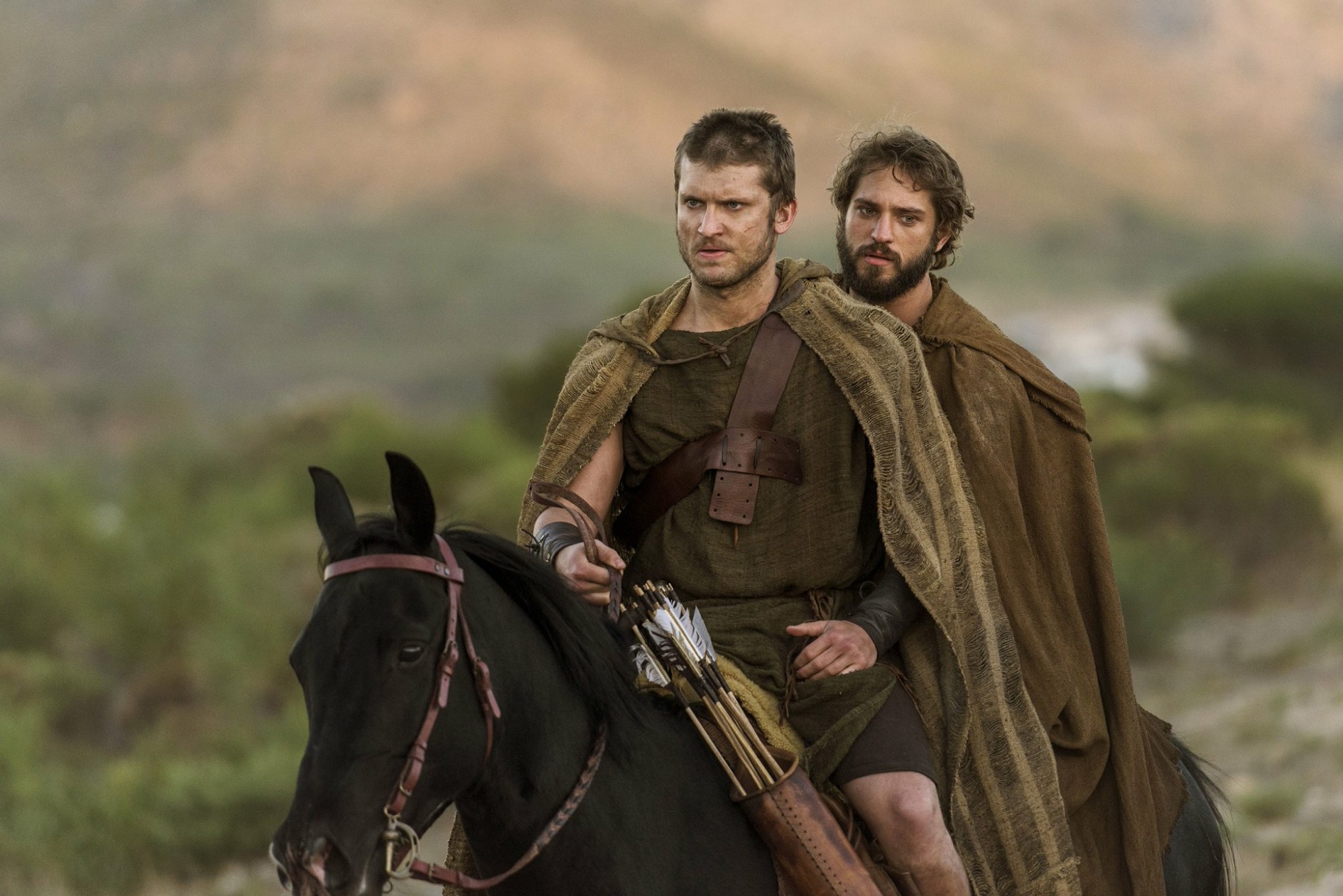Birdsong
Joseph Mawle is Jack Firebrace

BBC One’s adaptation of Sebastian Faulks’ modern classic
Joseph Mawle Interview
“I read the book over 13 years ago and at the time I remember thinking ‘I would love to do this book.’ I’ve got it written in my diary.”
Just before getting offered the part of Jack Firebrace in Birdsong, Joseph Mawle wrote down that for his next role he would like to do something epic, something which has heart. Three days later he received a phone call from director Philip Martin offering him a role in the adaptation of Sebastian Faulks’ acclaimed novel.
“I had worked with director, Philip Martin before on Murder on the Orient Express so I knew him from that. He rang me and he said he was in Budapest, which is where we filmed Birdsong, and he said; ‘Do you want to play Jack?’ So I went ‘Yep!’
“Philip is amazing to work with. It’s lovely being able to trust him. You get a real sense of warmth from him and the feeling that he totally believes in you. It’s definitely been one of the best experiences I’ve had as an actor.”
To get into the role of tunneller, Jack Firebrace, Joseph immersed himself in all things to do with the First World War.
“I went to the Somme, it’s beautiful and it’s so peaceful there now. I recorded the birdsong there and at the Menin Gate in Ypres, where they play the last post every single day. I had that on my iPod as well and it just puts you in what you’re doing. I remember reading Sebastian Faulks and thinking, ‘Have I got the right to tell this story?’”
“I think we all wanted to immerse ourselves in the true stories of that war and to honour them. We wanted to take it on but without patronising it, without making it what it’s not because we’re dealing with reality.”
Joseph carried out detailed research about the lives of tunnellers who worked in the trenches at the Somme during the First World War and he was surprised by what he found. By drawing attention to the plight of the tunnellers, he hopes to give audiences a wider view of the First World War.
“There was a lot of unease between the infantry and the tunnellers, who were paid more and received more food. These guys come from a place where they’d been used to mining, working underground and that’s why they arrived at the war, in a sense, far more experienced than their counterparts; in a way they were kind of like a Special Forces team.
“As a result they were much calmer in the face of death; they had a ‘Zen’ like quality about them because they had dealt with death every day. In their normal work they would be in situations where they could easily die, tunnelling generally is fatal.
“The tunnellers were a lot older than most of the infantry. When you walk around the graves in France the majority of ages on the gravestones are between 18-23 and then occasionally there’s someone who is 30, and that’s quite a surprise. Jack Firebrace is in his 30’s and he is wiser than the young guys who are out there with a sense of camaraderie. It seemed like there were a lot of people who willingly signed up and I think they thought they would be home by Christmas.
“What makes Jack so extraordinary for me is the fact that he still remains human; he still gets touched and hurt and allows emotion in and I think that is what is important. Eddie’s character, Stephen, closes up in the face of this kind of horror, I think he needs thawing because he’s become this steel person and Jack reminds us, and Stephen, that humanity can still exist and hope is still important. If I could be someone I’d want to be someone like Jack.”
Joseph hopes that this adaptation of Birdsong will bring the First World War to the attention of a younger generation.
“I think all of us were very aware when we were filming that we wanted this story to reach out to the younger generation. There are plenty of films that are geared towards people who are very aware of the First World War and as we’re coming up to 100th anniversary of the Somme there is a sense that people will dismiss it slightly because it occurred over a hundred years ago, so it’s in the past. I think we all wanted to make it as present as possible.
“Also, I think something that we forget is these men, many of whom volunteered to go to war, had no idea what would happen to them or how long they’d be away or indeed, if they’d come back. We watch a lot of modern war films and I think this is forgotten in some of them. We wanted to reach out to a whole new audience, not familiar with the First World War history and also not in a typically nostalgic way in which the war is discussed. We want to reach out to people who are coming across the First World War in this way for the first time.
“It’s shocking how far humans are willing to go before we say ‘stop’ and no one said ‘stop’ at this moment in history, that’s the absolute tragedy of it all really. What’s sad is just how little ground was moved or taken during the battle of the Somme; you can literally stand on the line and see the amount of land they gained and how far they moved in four years. It’s not a very far distance at all.”












